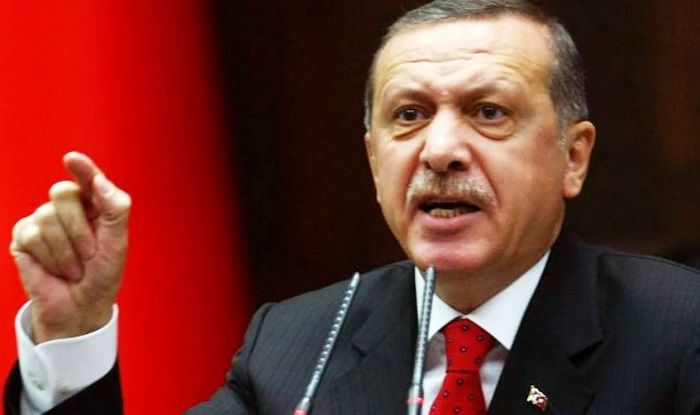Turkey's President Erdogan Condemns Israel's Nuclear Threats Amid Gaza Tensions
In a recent escalation of tensions in the Middle East, Turkish President Recep Tayyip Erdoğan has vehemently condemned Israel, accusing it of nuclear blackmail. This accusation comes in the wake of statements by Israeli officials suggesting the use of atomic bombs to address the Palestinian issue, a stance that has

In a recent escalation of tensions in the Middle East, Turkish President Recep Tayyip Erdoğan has vehemently condemned Israel, accusing it of nuclear blackmail. This accusation comes in the wake of statements by Israeli officials suggesting the use of atomic bombs to address the Palestinian issue, a stance that has ignited a diplomatic firestorm.
Erdoğan, known for his often hyperemotional rhetoric, has articulated his country's frustration and alarm. He alleges that Israel's references to a 'promised land' encroach upon Turkish territory and criticizes their nuclear posturing as a direct threat to the Gaza Strip's population. This accusation marks a significant uptick in the rhetoric surrounding the Israel-Palestine conflict, introducing the alarming element of nuclear weapons into the discourse.
The situation took a more volatile turn following Israeli bombings in Gaza. In Turkey, this action sparked widespread pro-Palestinian demonstrations, where protesters vehemently called for a boycott of Israeli products. The intensity of these protests culminated in attempts to assault the Israeli embassy and disrupt operations at an American military base, a critical node in the U.S. weapon supply chain to the Israel Defense Forces (IDF).
In a bold diplomatic move, Turkey recalled its ambassador from Tel Aviv, further straining the already tense relations between the two countries. This decision elicited sharp criticism from the Israeli Ministry of Foreign Affairs, which accused Turkey of supporting Hamas, a group it deems terrorist.
This incident underscores the complex and volatile nature of Middle Eastern geopolitics, where historical grievances, territorial disputes, and religious sentiments often collide. As tensions simmer, the international community watches with bated breath, hoping for a resolution that can bring peace to a region long plagued by conflict.




